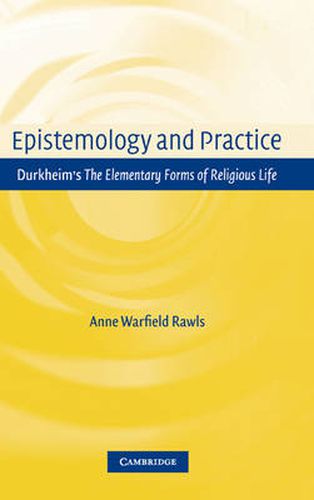Readings Newsletter
Become a Readings Member to make your shopping experience even easier.
Sign in or sign up for free!
You’re not far away from qualifying for FREE standard shipping within Australia
You’ve qualified for FREE standard shipping within Australia
The cart is loading…






In this original and controversial book Professor Rawls argues that Durkheim’s The Elementary Forms of Religious Life is the crowning achievement of his sociological endeavour and that since its publication in English in 1915 it has been consistently misunderstood. Rather than a work on primitive religion or the sociology of knowledge, Rawls asserts that it is an attempt by Durkheim to establish a unique epistemological basis for the study of sociology and moral relations. By privileging social practice over beliefs and ideas, it avoids the dilemmas inherent in philosophical approaches to knowledge and morality that are based on individualism and the tendency to privilege beliefs and ideas over practices, both tendencies that dominate western thought. Based on detailed textual analysis of the primary text, this book will be an important and original contribution to contemporary debates on social theory and philosophy.
$9.00 standard shipping within Australia
FREE standard shipping within Australia for orders over $100.00
Express & International shipping calculated at checkout
In this original and controversial book Professor Rawls argues that Durkheim’s The Elementary Forms of Religious Life is the crowning achievement of his sociological endeavour and that since its publication in English in 1915 it has been consistently misunderstood. Rather than a work on primitive religion or the sociology of knowledge, Rawls asserts that it is an attempt by Durkheim to establish a unique epistemological basis for the study of sociology and moral relations. By privileging social practice over beliefs and ideas, it avoids the dilemmas inherent in philosophical approaches to knowledge and morality that are based on individualism and the tendency to privilege beliefs and ideas over practices, both tendencies that dominate western thought. Based on detailed textual analysis of the primary text, this book will be an important and original contribution to contemporary debates on social theory and philosophy.